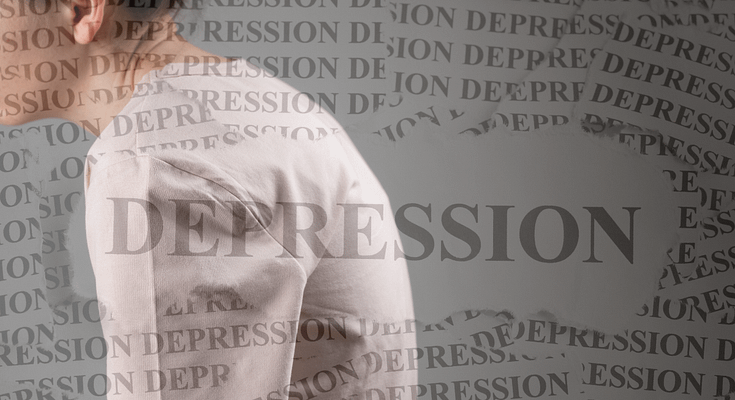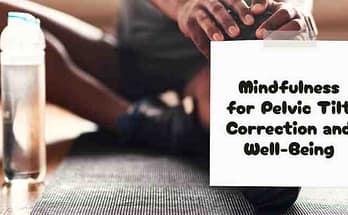Did you know there is a connection between the way you position your body and your emotional state? The way you move, sit and stand can have a profound impact on your mood. Posture is an important factor in determining how we feel.
Understanding how posture and depression intersect will help you learn how to keep your mood up, even when life’s challenges weigh you down.
How posture affects mood
Your posture is important for maintaining a healthy physical body, but it also affects your emotional state. You might not realize that how you sit, stand and move can affect how you feel.
Maintaining good posture is essential to maintaining a positive mood. When you slouch, you create tension in your body that can lead to depression, anxiety and other emotional issues. People who maintain good posture have higher self-esteem and are more likely to feel like they’re in control of their lives.
Good posture also makes you look more attractive, which can boost your mood.
Posture and serotonin
Serotonin is a neurotransmitter in the brain that regulates mood, appetite and sleep. It also plays an important role in social behavior and sexual activity.
Researchers have found that people with low levels of serotonin are more prone to depression than those who have normal levels of this chemical in their brains. When you slouch, it can become harder to produce serotonin.
Research shows that people who maintain good posture have higher levels of serotonin than those who don’t. As a result, they’re less likely to experience depression.
Low mood and slouched posture
Low mood and slouched posture can become a vicious cycle . If you tend to feel down, it’s easy to start slouching. But this can make you feel even worse. This is because the brain centers that control mood and posture are closely linked.
When one area is activated, the other is automatically affected as well. The brain centers that control mood and posture are closely linked.
This means that if you slouch, you’re more likely to feel depressed. And if you feel down, it’s easy to slump further. This can make the cycle harder to break.
Upright posture may improve mood.
Studies have shown that people who stand up straight tend to feel better. This may be because their body position activates the brain centers that control mood and posture.
When these areas are activated, they send signals to other parts of the brain and create a positive feedback loop. This is why people who stand up straight tend to feel better.
Upright posture may improve concentration. Studies have shown that people who stand with good posture are more likely to perform well on tests. This may be because their body position activates the brain centers that control mood and posture as well as attention span.
How to Improve Posture
Your posture affects many aspects of your life. It can affect how you feel and how confident you look. Improving your posture will not only make you feel better, but it can also help improve your overall health.
Here are some tips to help you improve your posture.
Standing Tall
-Stand tall with your shoulders back and head up.
-Pull in your abdominal muscles, which will make you look thinner and taller.
-Tuck in your chin slightly to help keep your head up.
-Imagine there’s a string attached to the top of each ear pulling it toward the ceiling. This will help straighten out any slouching that may have crept into your posture over time.
Sitting Up Straight
-Sit with your back against the chair and feet flat on the floor.
-Keep your head up, not down.
-Don’t cross your arms or legs, as this can make you look closed off from others.
-If possible, use a back support so that you don’t slouch forward while sitting in front of the computer for long periods.
Moving Your Body
-Move your body as much as possible.
-Sitting in one place for too long can cause muscle tension, which makes you look tired and bored.
-If possible, take five-minute breaks every 30 minutes or so to stand up and stretch your muscles.
Practicing good posture requires a daily commitment
It’s not something that you can do for a few days and then forget about it. You need to work on your posture daily so that it becomes second nature. Make sure that you are practicing good posture throughout the day, even if no one else is around to see you doing it.
The bottom line is that the more you practice good posture, the better it will become for you. You’ll look less tired and bored, and more confident and energetic. It can be tough to change your body language after years of bad habits, but if you stick with it, your efforts will pay off.
Changing your posture can be uncomfortable
You may feel awkward and self-conscious when you first start standing up straight or sitting up straight. But the more you practice good posture, the more natural it will become for you. In time, you’ll feel more confident and comfortable in your body. You may even notice that people treat you differently when they see how well you carry yourself. The bottom line is that the more you practice good posture, the better it will become for you.
Small changescan make a big difference
Posture is something we should be conscious of throughout the day, and it’s something we can improve by making small adjustments to our posture.
These changes may seem insignificant, but they can have a big impact on how we feel. By improving our posture and maintaining good posture throughout the day, we’re sending a message to our brain that we are proud of who we are and what we have accomplished.
Taking small steps towards better posture can change your mental outlook. It’s not hard to imagine that a negative feeling can affect your posture and health negatively, but this works in reverse as well. Positive feelings, even if you’re just imagining them, can improve your mood and energy level. The key isn’t to force yourself to only feel positive; it’s to show yourself that you have control over how you act and feel, no matter what happens around you.
If you are dealing with depression, it may be helpful to pay attention to your posture and observe how it can influence mood. Many people who have depression find ways to feel better by improving their posture. However, they should always seek the help of a mental health professional to address their depression as well as any other underlying issues. Paying attention to what triggers their depression or whether certain activities or routines are helpful or harmful will help them chart a path forward towards recovery.




